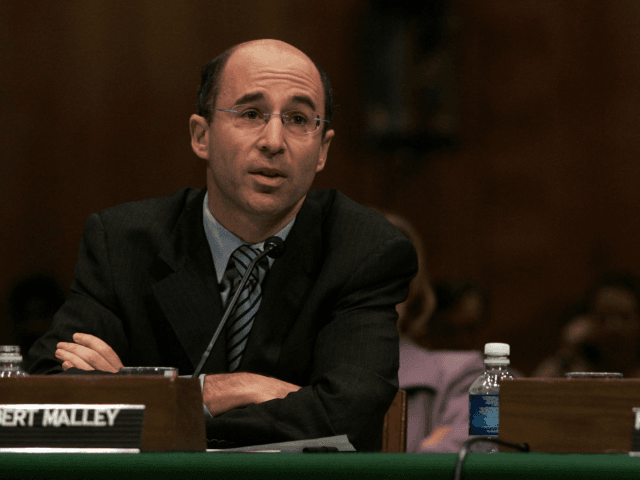JERUSALEM – Robert Malley, President Obama’s new senior adviser on defeating the Islamic State, advocated negotiations with Hamas and urged the international community to provide financial assistance to a Palestinian government that included the terrorist group. He also acknowledged holding meetings with Hamas members.
The Obama administration announced Malley’s appointment two weeks ago. Judicial Watch charged that the announcement was buried “deep in a press briefing delivered at a Paris hotel during the recent climate summit” on November 30.
At that press briefing, White House Spokesman Josh Earnest stated:
“The President recently elevated Robert Malley, the NSC Coordinator for the Middle East and North Africa, to serve now as the Senior Advisor to the President for the Counter-ISIL Campaign in Iraq and Syria. In this new role, Rob will focus on ensuring full interagency coordination across all lines of effort. His role will be complementary to and in partnership with Brett McGurk, who is the President’s Special Envoy to the Counter-ISIL Campaign.”
Malley stepped down as an informal advisor to Obama’s 2008 presidential campaign after it was reported that he had held meetings with Hamas, which is labeled a terrorist organization by the State Department.
Malley penned a letter to The New York Times in May 2008 titled “A Resignation Explained.”
He claimed he distanced himself from Obama’s campaign “because it was becoming a distraction to me and to Senator Obama’s campaign, and to avoid any misperception — misrepresentation being the more accurate word — about the candidate’s position regarding the Islamist movement.”
Malley further stated that he had “never hidden the fact that I had meetings with Hamas” and said the encounters were arranged as “part of my job as Middle East program director at the International Crisis Group.”
The International Crisis Group is a small organization funded by George Soros’ Open Society Institute.
Malley did not simply hold meetings with Hamas. He also urged the international community to finance a Hamas-led Palestinian government.
When Hamas took a majority of seats in the Palestinian parliament in 2006, Malley wrote a piece for the Baltimore Sun cautioning the international community against withholding funds to the newly formed Hamas-led Palestinian government.
“Without the leverage of Western funding, without the responsibility to ensure it keeps flowing, Hamas will be less constrained and freer to revert to past practice,” he warned.
“An inflexible approach to the PA would carry other perils. Hamas, searching for a substitute source of funds, might turn to Iran or, convinced that it is being set up for failure, drop its political gambit and return to the familiarity of armed confrontation.”
Malley wrote that while the U.S. should’t talk directly with Hamas, it should also not “discourage third-party unofficial contacts with [Hamas] in an attempt to moderate it.”
Malley wrongly predicted that “Hamas’ electoral landslide might optimize conditions for its political transition. … The more Hamas exercises government responsibility, the less it is likely to revert to violence.”
Hamas has continued its campaign of shootings and rocket attacks targeting Israeli neighborhoods and launched two wars against Israel since its electoral victory in 2006.
In April 2006, Malley wrote a piece for the International Herald Tribune that again petitioned the international community to continue funding the Hamas-dominated government.
Malley admitted there was “genuine uncertainty over whether Hamas ultimately can come up with the right answer” to regional affairs. However, he write that “halting aid to the Palestinian Authority almost certainly will yield the wrong one.”
He called for a 100-day trial period “during which aid to the Palestinian Authority would be channeled through a transparent World Bank trust fund.” He also demanded that Israel release tax revenues to the Palestinian government led in part by Prime Minister Ismail Haniyeh of Hamas.
In January 2008, Malley co-authored an opinion piece in the Washington Post with Hussein Agha, a former advisor to the Palestinians, which advocated an “arrangement between Israel and Hamas” that “could advance both sides’ interests.”
Malley also claimed that a “renewed national compact” between Fatah and Hamas, and “the return of Hamas to the political fold would upset Israel’s strategy of perpetuating Palestinian geographic and political division.”

COMMENTS
Please let us know if you're having issues with commenting.